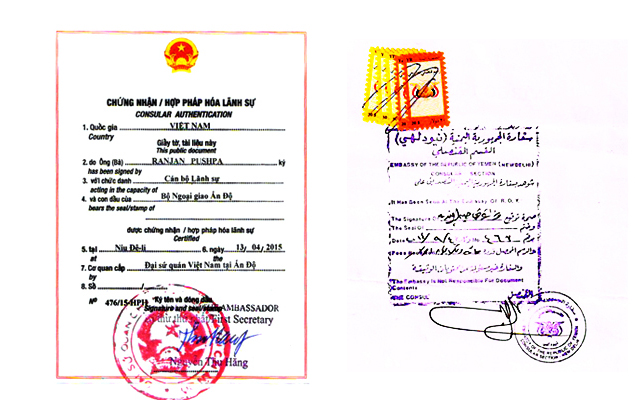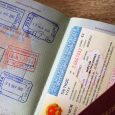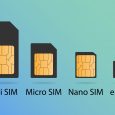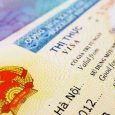Are you planning to visit or conduct business in Vietnam? If so, you might need to have your documents legalized through the Vietnam consular legalization process. This can be a daunting and confusing task for many people, but worry not! In this guide, we’ll cover everything you need to know about Vietnam consular legalization, including what it is, why you need it, and how to get it done.

What is Vietnam Consular Legalization?
Vietnam consular legalization is the process of verifying the authenticity of documents issued outside of Vietnam. This is typically required when individuals or companies need to submit foreign documents to Vietnamese authorities, such as for visa applications, marriage certificates, academic transcripts, or business contracts. The purpose of consular legalization is to ensure that these documents are legally recognized in Vietnam and meet the country’s requirements for validity and accuracy.
There are two types of Vietnam consular legalization: authentication and legalization. Authentication is the first step and involves verifying the signature and seal of the document’s issuing authority by the Vietnamese embassy or consulate located in the country where the document was issued. Legalization is the second step and involves confirming the authenticity of the authentication stamp by the Ministry of Foreign Affairs in Vietnam.
Why Do You Need Vietnam Consular Legalization?
Vietnam consular legalization is necessary in order to make sure that your foreign documents are legally recognized in Vietnam. Without proper legalization, your documents may be considered invalid or unreliable by Vietnamese authorities, which can result in delays, rejections, or other consequences. Some common reasons why you might need Vietnam consular legalization include:
- Applying for a Work Permit
- Getting married in Vietnam
- Studying in Vietnam
- Doing business in Vietnam
- Importing or exporting goods to/from Vietnam
- Registering a trademark or patent in Vietnam
How to Get Vietnam Consular Legalization?
The process of getting Vietnam consular legalization can vary depending on the type of document, the issuing country, and other factors. Generally speaking, however, the following steps are involved:
- Check the requirements: Before you start the process, make sure that your document is eligible for Vietnam consular legalization and that you have all the necessary supporting documents (such as translations, notarizations, etc.). You can find more information about the requirements on the website of the Vietnamese embassy or consulate in the issuing country.
- Get the documents authenticated: The first step is to get your document authenticated by the Vietnamese embassy or consulate in the issuing country. This typically involves filling out an application form, providing proof of identity, paying a fee, and submitting the original document or a certified copy. The embassy or consulate will then verify the signature and seal of the issuing authority and attach an authentication stamp to the document.
- Legalize the authentication: Once your document has been authenticated by the Vietnamese embassy or consulate, you need to legalize the authentication stamp by the Ministry of Foreign Affairs in Vietnam. This can be done by sending the authenticated document along with the required fees and supporting documents to the Legalization Department of the Ministry of Foreign Affairs. After processing, the Ministry will attach a legalization stamp to the document, which confirms its authenticity.
- Collect the legalized document: Finally, you can collect your legalized document from the relevant authority. If you are outside of Vietnam, you may need to request it to be mailed to you.
Tips for Smooth Vietnam Consular Legalization
Getting your documents consular legalized in Vietnam can be a complex and time-consuming process. Here are some tips to help you avoid common pitfalls and ensure a smooth experience:
- Research the requirements thoroughly before starting the process
- Allow enough time for processing and potential delays
- Double-check all the details on your documents, including spelling, dates, and formatting
- Use a reliable and experienced service provider to assist you with the process
- Keep track of all the fees, documents, and deadlines involved
- Be patient and respectful when dealing with embassy or consulate officials
- Don’t hesitate to ask for help or clarification if you have questions or concerns
Conclusion
Vietnam consular legalization is an essential step for anyone who needs to submit foreign documents to Vietnamese authorities. By following the steps outlined in this guide and being prepared for the requirements and challenges involved, you can ensure that your documents are properly legalized and recognized in Vietnam.
FAQs
- How long does it take to get Vietnam Consular Legalization? The processing time for Vietnam consular legalization can vary depending on the type of document, the issuing country, and other factors. Generally speaking, it can take anywhere from a few days to several weeks or even months.
- What documents are eligible for Vietnam Consular Legalization? Some common examples of documents that may require Vietnam consular legalization include birth certificates, marriage certificates, academic transcripts, police certificates, powers of attorney, and business contracts.
- Can I do Vietnam Consular Legalizationby myself or do I need to hire a service provider?
You can technically handle Vietnam consular legalization on your own if you are familiar with the requirements and procedures involved. However, it can be a complex and time-consuming process that may require multiple visits to different authorities, as well as translations, notarizations, and other supporting documents. Therefore, many people choose to hire a professional service provider, such as a legal firm, translation agency, or visa agent, to assist them with the process.
- How much does Vietnam Consular Legalization cost?
The fees for Vietnam consular legalization can vary depending on the type of document, the issuing country, and the service provider used. Generally speaking, you can expect to pay several hundred dollars or more per document, including authentication and legalization fees, translation fees, notarization fees, and service fees.
- What happens if my document is rejected during Vietnam Consular Legalization?
If your document is rejected during Vietnam consular legalization, you will be notified of the reasons and given the opportunity to correct any errors or deficiencies. Depending on the nature of the issue, you may need to provide additional supporting documents, revise the content of the document, or seek legal advice. In some cases, you may need to start the process over again from the beginning.



